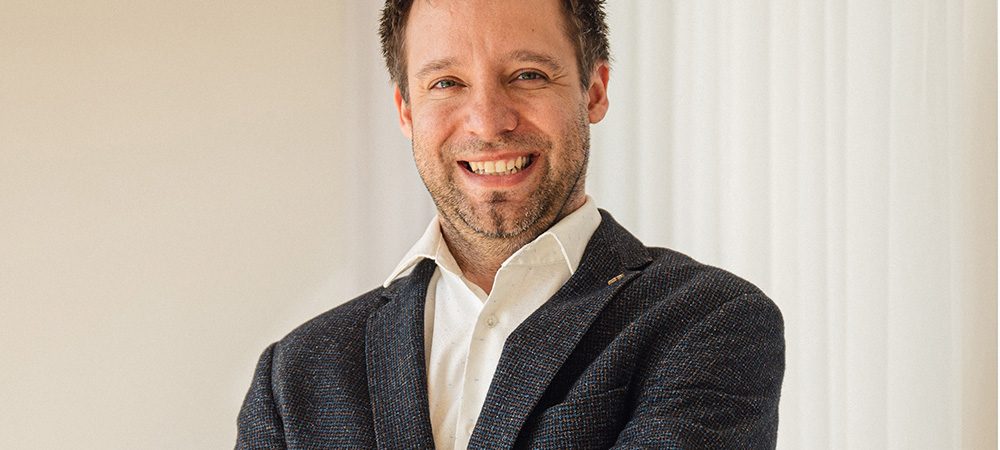ROI Hunter aims to make retailers more efficient, their employees more successful and their marketing more inspiring. CEO, Karel Schindler, explains how a three-year programme at Harvard Business School turned the company’s fortunes around. He also speaks about the company’s mission and how he believes a key part of his role is to coach others and inspire.
Describe your current job role.
I’ve been the CEO of ROI Hunter since 2014, where I lead the business in improving e-commerce profitability on a global scale. My role as CEO is to help retailers discover the benefits of product performance data, highlighting the insights they need but didn’t know they could get. As a part of my role, I get the opportunity to work with top retailers, helping them navigate the vision for their e-commerce strategies.
What would you describe as your most memorable achievement?
Five years into my time as CEO, in 2019, I was inspired by an investor to enrol in a three-year CEO programme at Harvard Business School. Making the move while running my business full time was a big decision – and I’m sure it had its doubters! But I was lucky enough to be accepted in as the youngest person in the class. These learnings helped me to essentially reset our business model – focusing on product performance management and how it can benefit retail. It’s our proudest achievement because this enabled a turnaround in the company’s fortunes. We became profitable and able to self-fund our growth.
What style of management philosophy do you employ with your current position?
One of my professors at Harvard Business School, Boris Groysberg, inspired me with the concept of hiring for potential. This idea comes from the finding that individual performance is not necessarily transferable across companies. Perhaps someone’s high performance was due to the processes the previous company had in place, or any number of other factors.
With this in mind, it’s better to hire people based on high potential, as opposed to previous performance. Look for people who are eager to learn, engaged, driven to improve and are determined to succeed.
Part of our company’s mission is based around unlocking the potential of our employees. We place as much focus on the potential of our employees as our customers. In interviews with new hires, we assess the potential of candidates and map out our plans to help them grow. We work with our people and help them to improve and gain new skills. Some of these employees have told me they learned more in one year at ROI Hunter than in three years at any other company.
What do you currently identify as the major areas of investment in your industry?
CMOs were once solely responsible for how their organisation spent its advertising budget to reach new customers online. The role was challenging, but they didn’t need to spin several plates. Now, with consumers cutting back on purchases and privacy regulations evolving, it’s a juggling act to achieve greater profitability. Retailers therefore are looking to invest in solutions that lead to a healthy balance sheet, and our focus is on helping them leverage product data to focus budgetary resources on their best products in real-time.
If you could go back and change one career decision, what would it be?
Before I started my programme at Harvard Business School, I was focused too much on firefighting issues while managing a lot of big business decisions in my own bubble. What I should have done earlier was invite people to challenge me on my established ideas. Since we’ve adopted this new culture, giving everyone a voice has helped spark innovation. It’s really important that feedback can be given to help me improve as a CEO and help others develop.
What advice would you offer somebody aspiring to obtain a C-level position in your industry?
The best leaders admit to their own mistakes and must lead with honesty and self reflection in order to improve. Any founder or leader of a company in this industry can’t be successful without people that they genuinely trust working with them in their team. I think I’ve previously underestimated how important it is for everybody in an organisation to work on meaningful projects to inspire and help them develop in their roles.
What behaviour or personality trait do you most attribute your success to and why?
A key driver for success has been insight. Specifically, insight into the retail sector from our customers and colleagues that has made me believe that I can offer something new and unique. It gradually became clear to me that product data can influence the retail sector at large, the oldest industry in the world. Our clients are now hugely benefitting from technology that is focused on this data.
I would attribute my success, and the success of everyone at ROI Hunter, on our eagerness to learn and improve.
What’s your go-to productivity trick?
Prioritisation. I believe the difference between a successful person and an unsuccessful person comes down to how they prioritise their time. I try to be very thoughtful in how I plan out my days; each morning I think through the most important things I should prioritise in order to achieve my long-term goals. The trick is to prioritise the long-term goals over the short-term ones.
What changes to your job role have you seen in the last year and how do you see these developing in the next 12 months?
Over time, I have realised that a key part of my role is to coach others and inspire. We’re all continuously learning, and it has become really important for me to take these learnings and pass them on to those around me. I think this will only continue to develop over the next 12 months and beyond, and this is where I want to spend the majority of my time.
Click below to share this article

